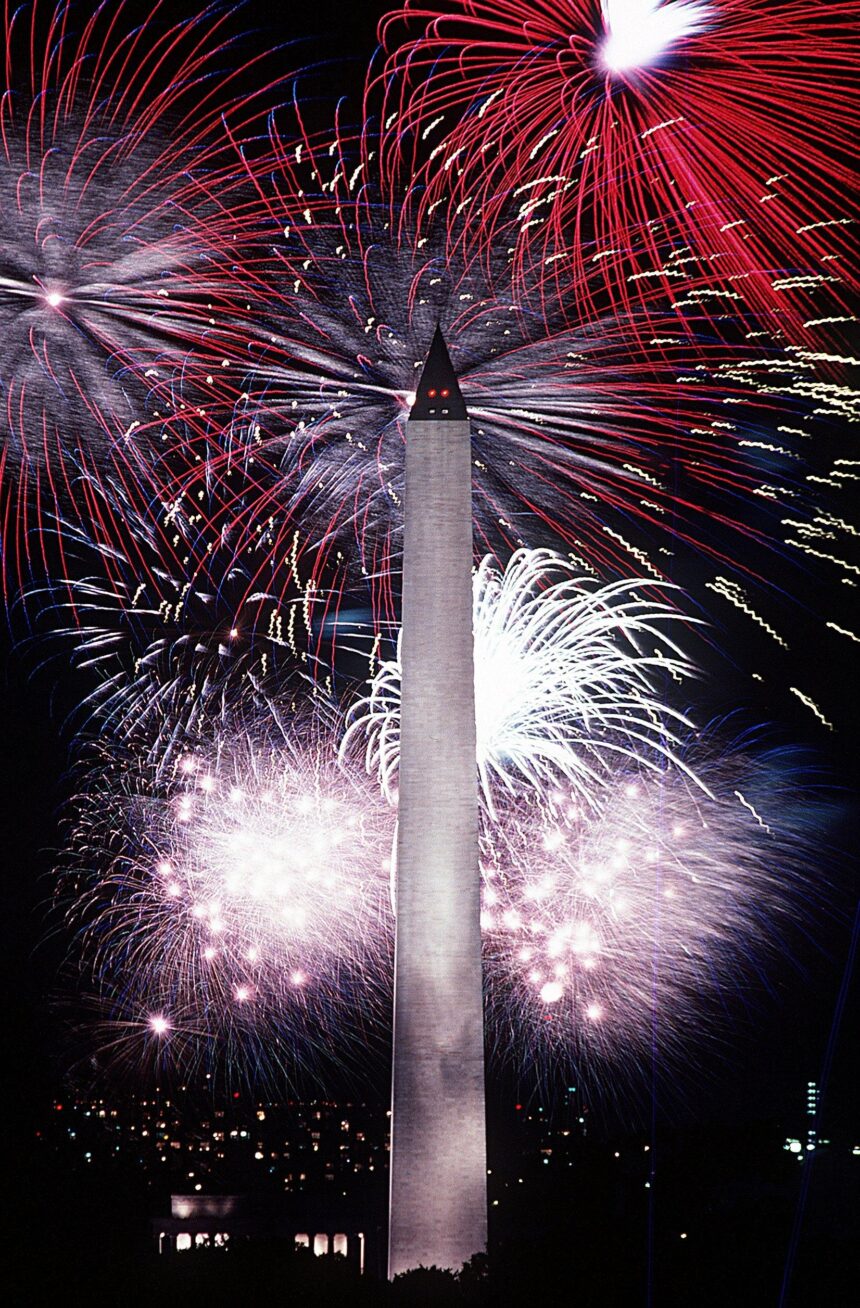As the United States celebrates another July 4th, the annual reverberations of fireworks and patriotic parades serve as both a commemoration of independence and a moment for reflection. This year, communities across the nation are not only honoring the birth of their country but also reassessing the values and ideals that underpin the American identity. From the echoes of historical events to contemporary social issues, July 4th prompts a critical examination of what it means to be American in today’s world. As families gather for barbecues and ceremonies, this article delves into the significance of this day and explores the lessons that history continues to teach—a poignant reminder of the ongoing pursuit of liberty and justice for all.
A Historical Perspective on Independence Day Celebrations
The celebration of independence in the United States has evolved significantly since the first commemorative events in 1776. Originally marked by solemn ceremonies and public speeches, these gatherings quickly transformed into more raucous displays of patriotism. Fireworks, barbecues, and picnics became staples of the holiday, mirroring the exuberance felt across the newly formed nation. In the early days, towns and cities would hold parades adorned with local bands and historical reenactments, giving people a sense of pride in their fledgling democracy. This sense of unity and purpose was not merely for celebration; it served as a reminder of the sacrifices made for their newfound freedom.
As America grew, so too did the complexity of its Independence Day celebrations. The day began to encompass not just a patriotic fervor but also reflections on the nation’s evolving identity, including themes of civil rights and unity among diversity. More recently, the observance has entered a digital age, with virtual fireworks shows and social media campaigns amplifying the holiday’s reach. To highlight the changing nature of July 4th, here is a brief comparison of early celebrations versus contemporary practices:
| Aspect | Early Celebrations | Modern Celebrations |
|---|---|---|
| Activities | Formal speeches, military parades | Fireworks, barbecues, concerts |
| Community Involvement | Town gatherings, church services | Public festivals, social media campaigns |
| Focus | Remembrance of the Revolution | Patriotism and unity, diversity |
Community Engagement: Strengthening Bonds Through July 4th Events
This July 4th, local communities came alive with a vibrant array of events that underscored the importance of unity and togetherness. From small towns to bustling cities, residents gathered to celebrate their shared heritage and foster connections, showcasing the spirit of independence. The festivities ranged from parades and fireworks to community picnics and concerts, each event thoughtfully designed to include residents of all ages. Highlights included:
- Neighborhood Parades: Colorful floats and marching bands brought the streets to life, showcasing local talent and pride.
- Fireworks Displays: Dazzling shows illuminated the night sky, drawing families and friends to parks and open spaces.
- Community BBQs: Served as a hub for neighbors to connect over delicious food and shared stories.
Community organizations worked tirelessly to ensure that these events were inclusive, offering activities designed for all demographics. Children enjoyed games and face painting while adults mingled, finding new friendships forged over shared experiences. Data from local surveys indicated a notable increase in participation compared to previous years, reflecting a desire for connection post-pandemic. The table below summarizes community engagement metrics:
| Event Type | Estimated Attendance | Community Feedback |
|---|---|---|
| Parade | 3,000+ | Positive |
| Fireworks | 5,000+ | Overwhelmingly Positive |
| Community BBQ | 2,500+ | Highly Encouraging |
Environmental Responsibility: Sustainable Practices for a Greener Independence Day
This July 4th, as fireworks light up the night sky and families gather to celebrate, a growing number of individuals are examining how they can incorporate eco-friendly practices into their festivities. From choosing plant-based barbecues to opting for biodegradable party supplies, countless Americans are making strides toward a greener celebration. Notable initiatives include:
- Using LED lights for decorations to reduce energy consumption.
- Hosting community clean-up events before and after festivities.
- Encouraging carpooling to reduce carbon emissions from travel.
- Recycling or composting waste generated during celebrations.
Moreover, some cities are adopting measures to ensure that Independence Day celebrations minimize environmental impact. This includes organizing fireworks displays that use lower-emission technology or offering alternative entertainment options that do not contribute to air pollution. A recent survey noted that municipalities engaging in such practices have seen a significant uptick in community involvement:
| City | Eco-Initiatives | Community Engagement (%) |
|---|---|---|
| Seattle | Zero-waste events | 80% |
| San Francisco | Digital fireworks | 75% |
| Austin | Solar-powered stages | 70% |
In Conclusion
As we mark another July 4th, this day of independence not only invites celebration but also compels us to reflect on the values that unite us as a nation. The festivities serve as a reminder of our shared history, the struggles for freedom, and the ideals of democracy that continue to shape our collective identity. While fireworks light up the sky and families gather to celebrate with barbecues and parades, let us also take a moment to consider the work that remains in ensuring liberty and justice for all. As we look to the future, may our reflections today inspire us to uphold the principles upon which this nation was founded, striving toward a more equitable and inclusive America. With these thoughts in mind, we can embrace the spirit of July 4th not just as a moment of celebration, but as a call to action for the days ahead.








